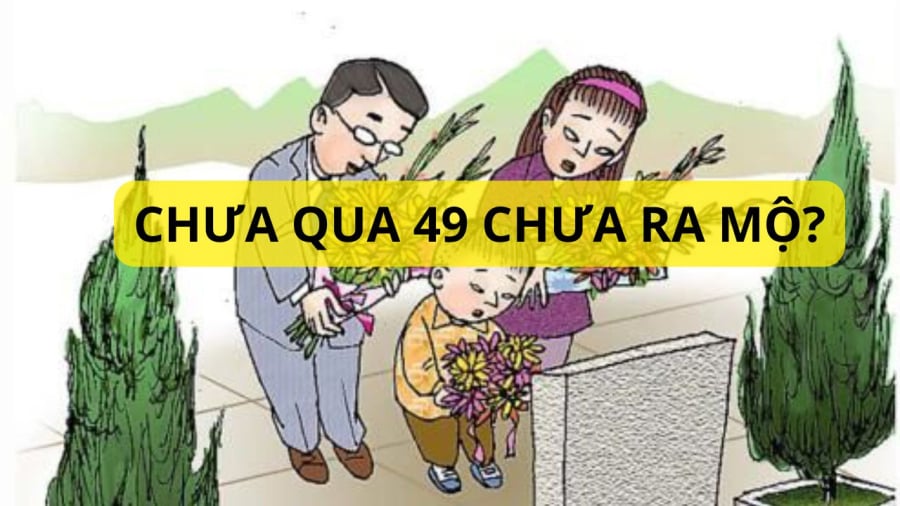In spiritual beliefs regarding the worship of the deceased, the first 49 days are considered crucial. According to these beliefs, when a person dies, the physical body decays, but the soul remains and is reborn depending on its karma.
The soul undergoes seven judgments, each lasting seven days, totaling 49 days. After this period, the soul must pass through a grand hall in the underworld, and after seven weeks, the soul will either attain liberation or be reborn into a new life. Hence, in folk beliefs, the 49-day memorial is of significant importance.
**Why is it advised not to visit the grave during the first 49 days?**
Ancient people believed that during these initial 49 days, the soul might still be confused about its rebirth and thus linger in the mortal realm. The soul of the deceased might loiter around the grave or the home. Therefore, relatives are advised not to visit the grave during this time, as it could cause the soul to become attached and hinder its rebirth.

The soul undergoes seven judgments for rebirth during the first 49 days
If the soul does not reincarnate, it may become a wandering soul, unable to attain liberation and without a place to dwell. Hence, in many communities, it is believed that not visiting the grave during these 49 days allows the soul of the departed to let go and attain a better afterlife, reaching a higher realm.
However, there are also local customs where, during the first 100 days, relatives visit the grave and offer incense during significant memorial services (the first three days of the opening of the grave, the 49-day memorial, and the 100-day memorial). This act is seen as a way to honor the deceased and provide comfort to their soul, assuring them that they are remembered and loved, thus preventing feelings of resentment or loneliness.
**What should be done during these 49 days?**
To facilitate the soul’s liberation, it is recommended to focus on acts that accumulate merit for the deceased and help them attain enlightenment for a quicker and higher rebirth:
– Offer meals to the deceased twice a day, preferably during the most intimate and well-attended family gatherings. The 49-day and 100-day memorial customs also stem from these beliefs, symbolizing family reunions, even with the deceased, sharing a meal together.
– Play music and chant Buddhist sutras to awaken the soul of the deceased, guiding them towards rebirth and encouraging them to do good deeds to attain a better afterlife and a fortunate rebirth.
– Perform charitable acts and dedicate the merit to the deceased.
– Refrain from using the belongings of the deceased to prevent them from lingering and demanding their possessions.
– Avoid large gatherings or festive activities during this period to maintain respect for the recently departed. Abstain from financial pursuits, weddings, or new clothing purchases, among other things.
*Reference for contemplation
































